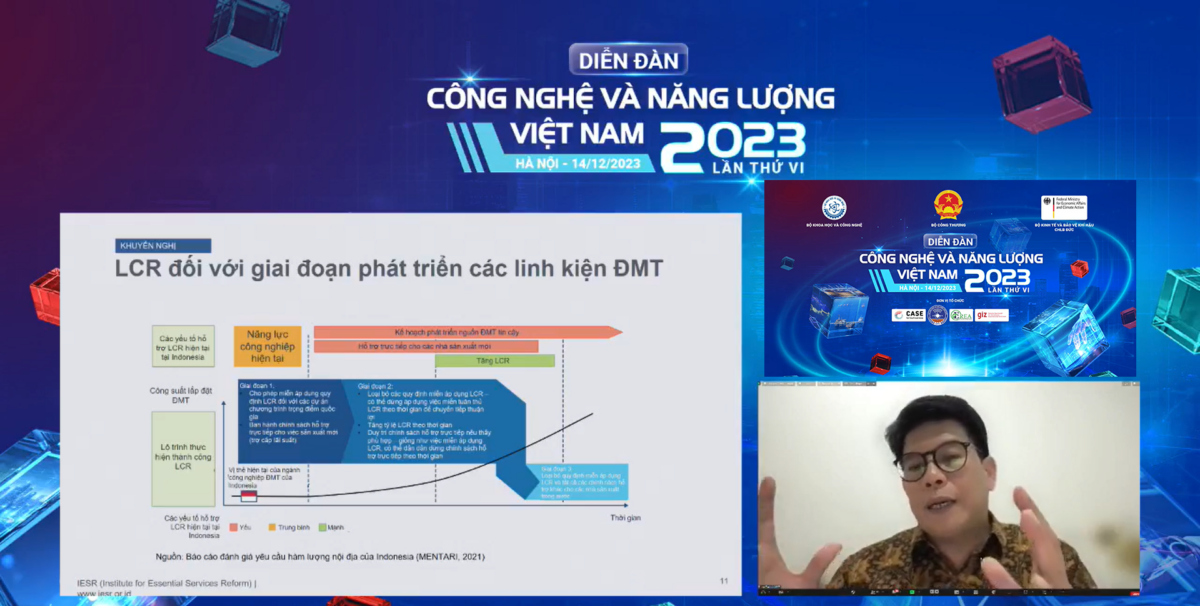Ha Noi, 14 December 2023 – The Ministry of Science and Technology of Viet Nam hosted its annual event: Technology and Energy Forum 2023, in collaboration with the Ministry of Industry and Trade and Project Clean, Affordable and Secure Energy for Southeast Asia in Viet Nam.In recent years, Viet Nam has witnessed remarkable development in the trends of energy transition, particularly in wind and solar power. By the end of 2022, the total capacity from wind and solar power had reached 20,165 MW, constituting 25.4% of the overall power capacity within the system.
However, despite this progress, 90% of equipment for renewable energy projects in Viet Nam is imported from countries like China, Germany, India, and the US. This reliance is due to the country’s limited ability to perform specific tasks during project assessment and development phases and its high dependence on imported technologies. Factors contributing to this situation include inadequate local technology capacity, production levels falling short of requirements, and a lack of support from industrial policies and mechanisms to encourage renewable electricity.
Consequently, Vietnamese enterprises and local supply chains have seen limited participation. Similarly, Indonesia faces comparable challenges in its procurement of renewable energy, particularly in solar power. Despite both countries boasting immense potential in solar power, their domestic markets are not yet equipped for solar manufacturing. This deficiency stems from uncertainties in local demands and the lack of competitiveness in the local supply chain.
Fabby started with an explanation about local content regulation that could minimize dependence on imported products.
“Indonesia is currently facing domestic market issues; these local products encounter difficulties entering the market. The lack of a credible development pipeline limits financial viability for new solar modules manufacturing facilities. When it comes to Rooftop PV, PLN limits the installation capacity to 15%. This regulation further restricts the market for domestic solar modules,” state Fabby.
Fabby went on to highlight several lessons learned from implementing Local Content Regulations (LCR) in Indonesia, which could potentially accelerate the development of Viet Nam’s solar energy local content. First, despite the projected growth in solar power, there’s insufficient market signal to stimulate the growth of the solar module industry without a reliable pipeline. Second, inconsistencies in policies across government bodies might discourage investment in the solar power market due to increased uncertainty. Third, support for the domestic solar modules industry should encompass downstream raw material industries to reduce import dependency and enhance the competitiveness of end products. Lastly, governments should offer incentives, both fiscal and non-fiscal, to encourage the development of solar module manufacturing facilities. Fabby emphasized that LCR, without a conducive investment climate for the industry, might impede rather than foster the development of solar power.

